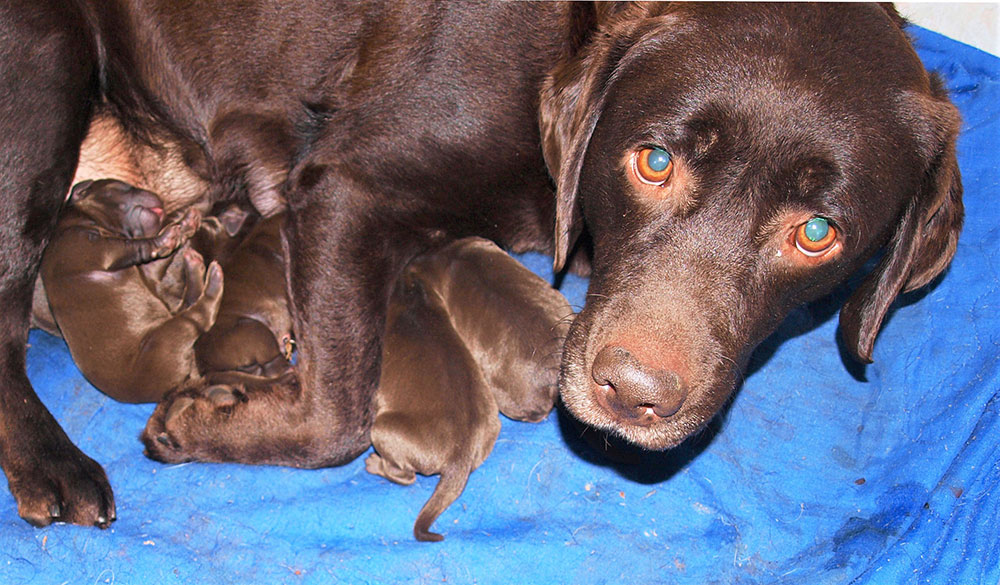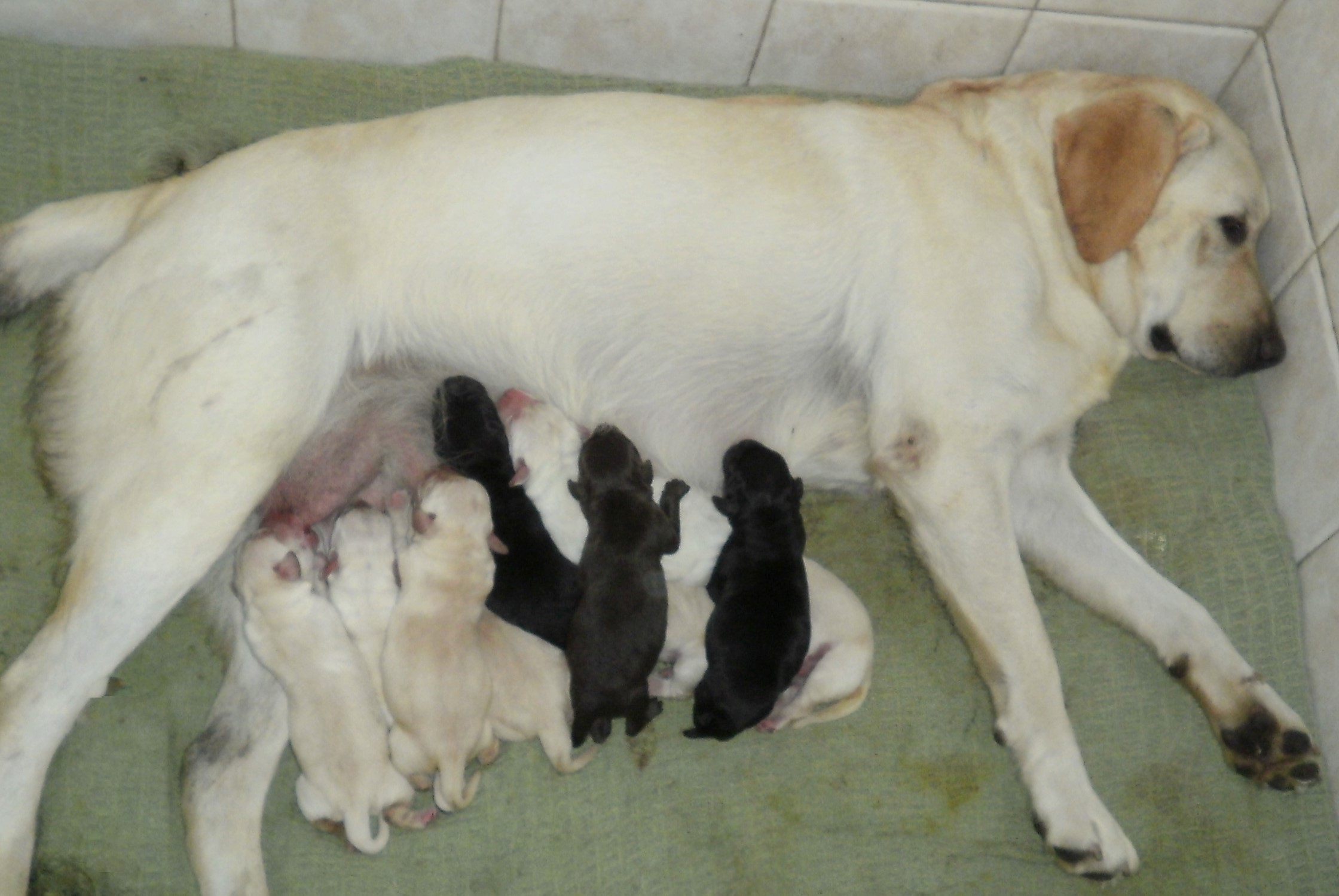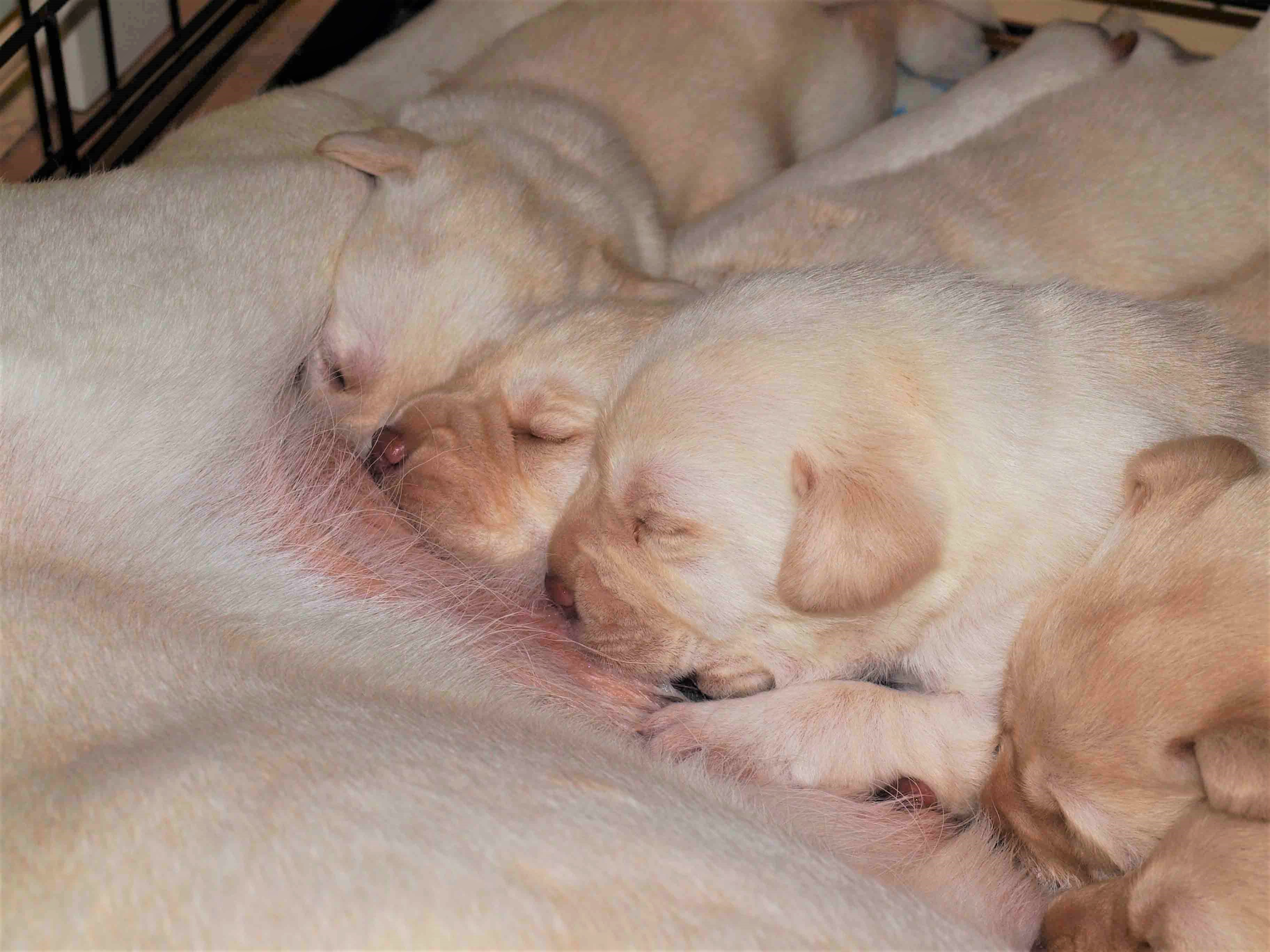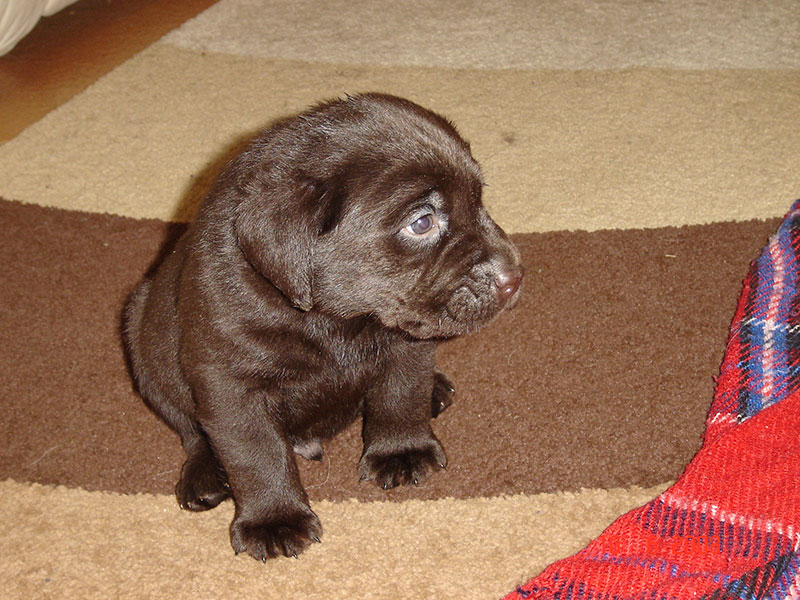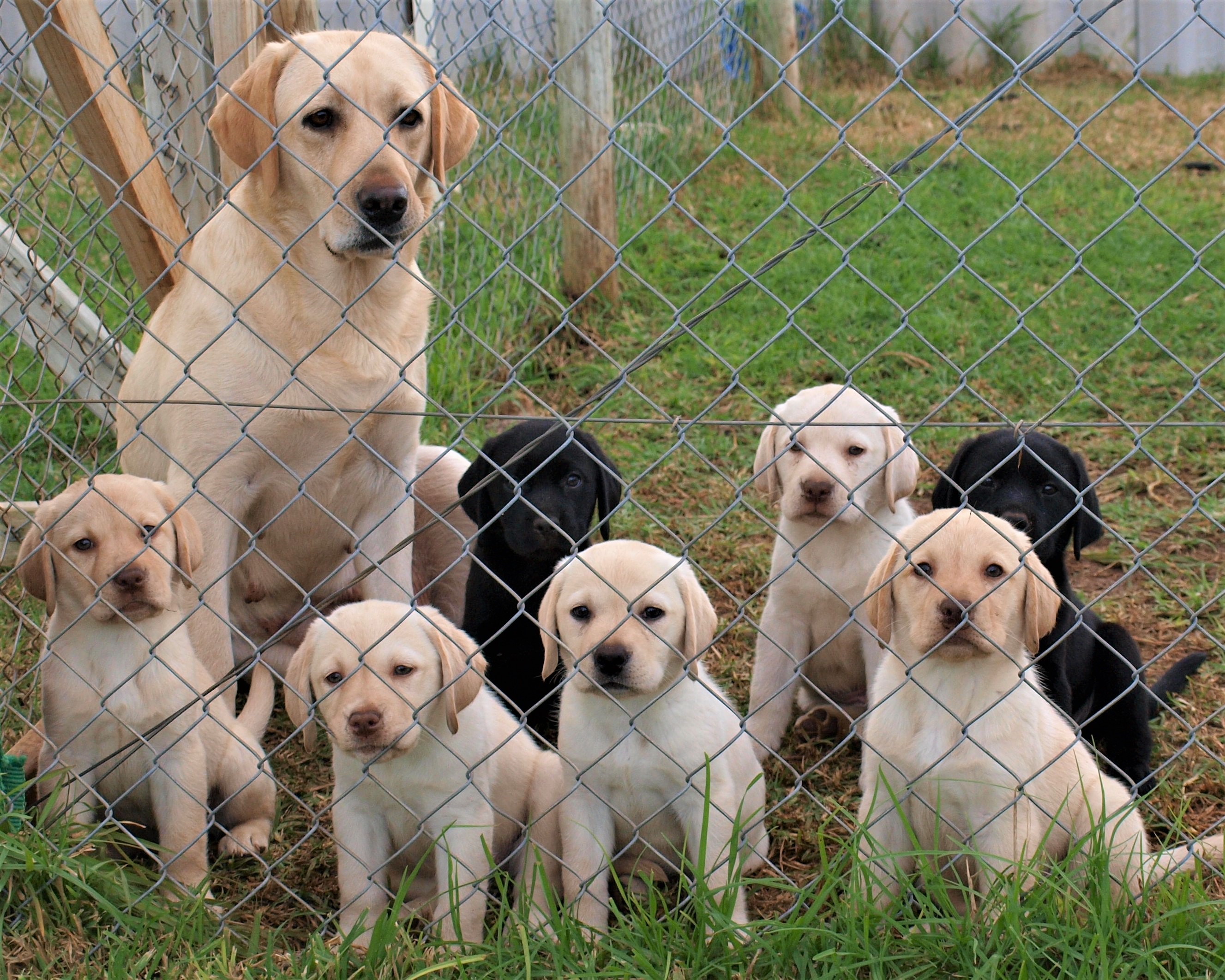From birth to 8 weeks old.
Very reliant on their mother
At birth
When puppies are born they are completely helpless and totally reliant on their mothers. They’re unable to produce their own body heat, they are both blind and deaf, without teeth, and cannot walk. They can neither urinate nor defecate on their own, requiring the stimulation of their mother’s tongue to even do a wee. They scrawl on their bellies to the warmth of their mother’s body, and snuggle into her teats for warmth and for food. Their sense of smell certainly works at birth, and they will smell their way to the “milk bar”.
Puppies spend only a mere nine weeks inside their mothers, and this, quite literally, isn’t enough time to grow them completely.
Putting on weight
One week
By one week of age puppies should have doubled in weight from their birth weight. They should be feeding without human intervention, finding their mother and the “milk bar” easily by scrawling around on their bellies. They can produce their own body heat and fight one another for access to the best teats.
Three times their birth weight
Two weeks
By two weeks of age the puppies should be three times the weight they were at birth. They also open their eyes, and slowly their world comes into focus. Just like a human baby, at first everything appears upside down, and slightly blurred, but over time the world rights itself and they see things more clearly (especially those things close by). Now their mother is an easier target, as they can see where she is and she has a little less respite from puppy duties.
Puppies spend only a mere nine weeks inside their mothers, and this, quite literally, isn’t enough time to grow them completely.
Eyes open and can start to hear
Three weeks
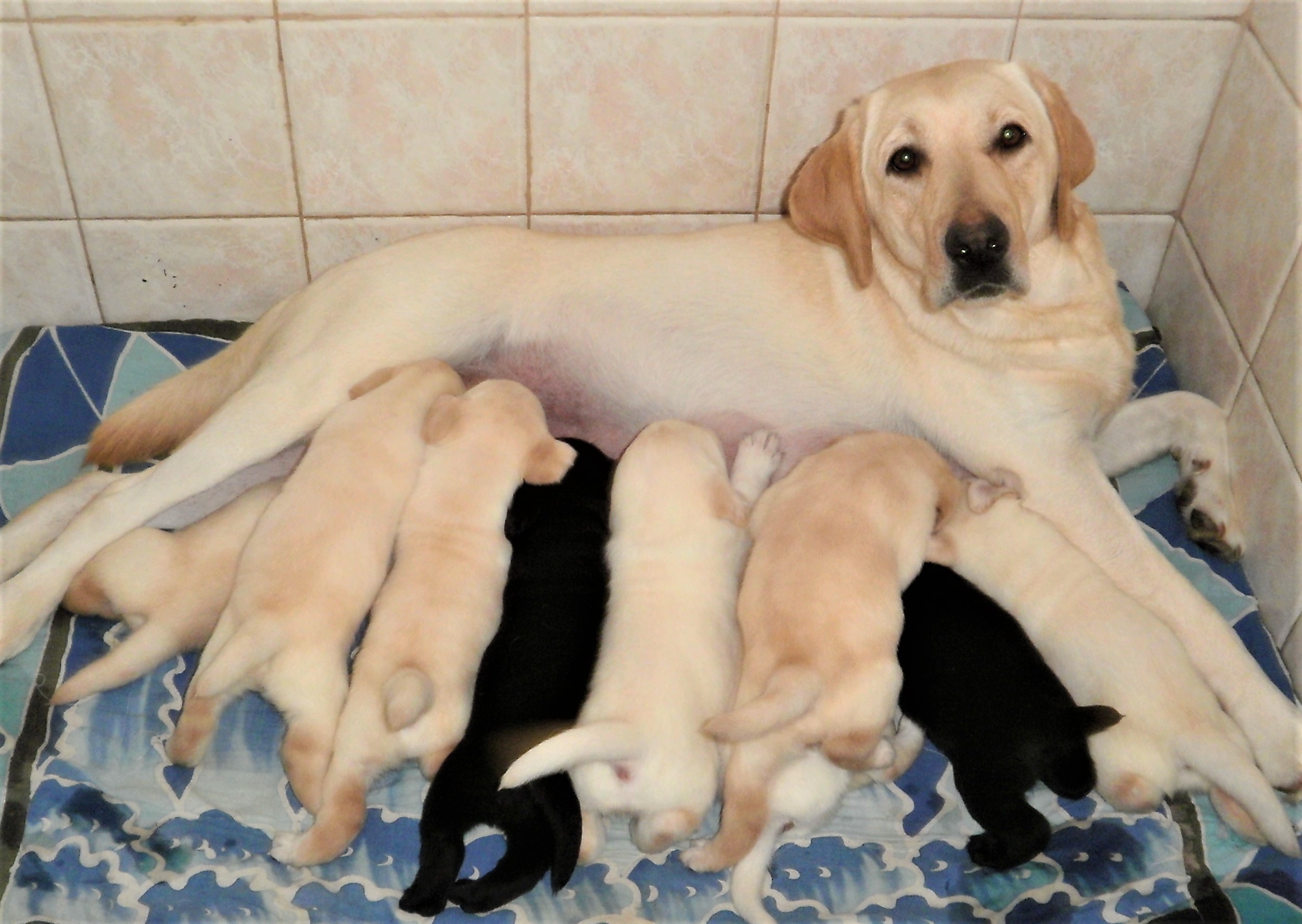
At 3 weeks of age the puppies’ ears open, and they can hear for the first time. Now they really start responding to their environment, and learn that they can make noises too. They bark, and then startle themselves with the noises they make, and try to growl, and yowl, and all sorts of interesting things. They’re also starting to get up on their feet and take their first tentative steps as a quadruped. Now that the puppies can see and hear and walk, they start to take more of an interest in one another too. They start to play, and fight, and growl with one another. They still have no teeth at this age, so it can be quite funny to see these first gummy play fights.
Weaned of their mothers
Four weeks
At 4 weeks the puppies cut their first teeth, milk teeth just like for our own human babies. Now they can be introduced to solid food for the first time. Something mushy like soaked biscuits and raw meat, given wet and warm as it would be in the wild. A she-wolf would regurgitate the meat and flesh she’d eaten for her puppies to have as their first meal. It would be soft, warm, and partially digested. So, the food we provide should be similar.
Average 3 kg weight
Five weeks

By 5 weeks the puppies weigh about 3 kilos. They are playing with their littermates quite a lot now, learning how to use their teeth by biting and chewing on everything in sight (including their siblings), and learning how to use barking, growling, yelping, or crying to communicate. They still sleep three quarters of the day, but their awake times are becoming more adventurous. They are taking more interest in the humans around them now, too, and will cry in anticipation of meal times and the promise of food.
100% solid food
Six weeks
By 6 weeks of age the puppies are weaned from their mothers. They’re now completely independent of her, and living life on their own. They are 100% on solid food, usually still with some milk supplements, but that will stop in the next week or so. The puppies receive their first vaccination at 6 weeks of age, plus their microchip, and by that age they’re starting to venture out of the “den”. In the wolf pack, there’s nothing preventing puppies from climbing out of the den where they were born and simply wondering off. Instinct keeps them inside. It’s instinctive for puppies to want to stay in a dark, enclosed, and small space.
Social learning
Seven and eight weeks
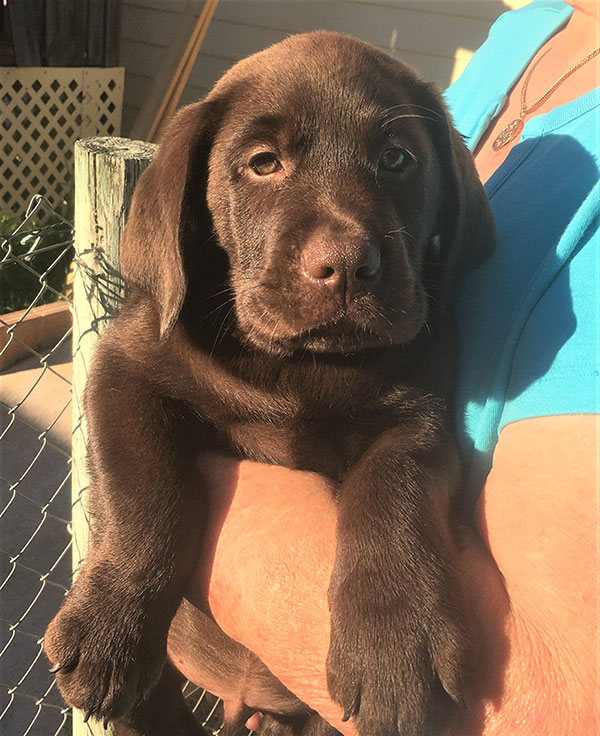
Between the ages of 6 and 8 weeks, puppies learn a great deal from one another. They learn how to play, and how to do it without hurting their littermates. They learn the concepts of cause and effect (mostly “if you hurt me then I’ll bite you back!”). They learn that they are a puppy; that their littermates are just like they are, and the value of being in a pack. They “imprint” on the dog, and understand that’s what they are and that a dog is what they’ll grow into. They learn confidence, explore the outside world, play with water, sand and grass, and learn a whole myriad of other skills necessary for growing into a mentally healthy dog. Puppies separated from their litter before 8 weeks can suffer psychological damage, exhibiting behavioural issues, separation anxiety, and they can “imprint” themselves onto humans instead of dogs. That’s why it’s so essential for puppies to remain with their litter until 8 weeks of age.
Get in touch
Contact us
Address
A. 82 Peters Road, Muchea, 6501
(Prideland Kennels and Cattery)
M. PO Box 237, Muchea, 6501
Phone or email
P. (08) 9571 0677
M. +61 414 898 236

